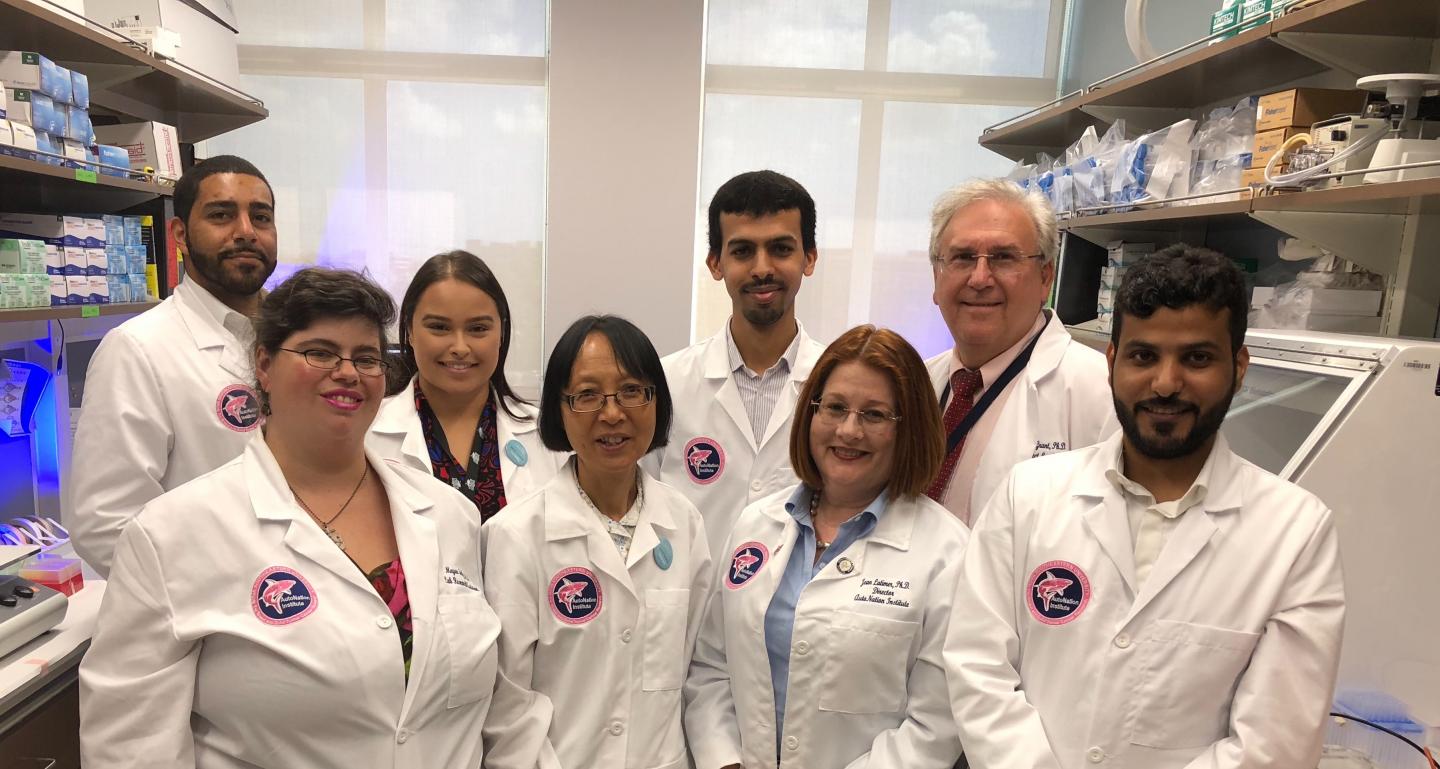
Credit: Nova Southeastern University
FORT LAUDERDALE/DAVIE, Fla. – Nova Southeastern University (NSU) researchers recently discovered that by testing the level of NER (nucleotide excision repair) gene expression, pediatric oncologists can determine the likelihood of early relapse (less than three years) in their acute lymphoblastic leukemia (ALL) patients. This is a critical finding because NER gene expression levels can now help guide doctors in their rationale for appropriate treatment targeted to each patient’s disease.
ALL is the most common childhood cancer. Treatment has improved dramatically due to evolving methods of determining risk factors and genetic analysis. Five-year survival rates have increased substantially from 57% in 1975 – ’77 to 92% in 2006 – ’12. Yet, the current genotoxic chemotherapy regimens are still extremely debilitating.
“Our research found a correlation between high NER expression levels and early relapse of ALL among relapsing patients,” said Jean Latimer, Ph.D., director of the NSU AutoNation Institute for Breast and Solid Tumor Cancer Research and associate professor and cancer research scientist in NSU’s College of Pharmacy. “Being able to identify patients with the highest risk of early recurrence who are not detectable using present clinical measures and then treating them with a more targeted therapy is crucial to overcoming the cancer.”
This is critical, according to the research recently published in the peer-reviewed journal, BMC Medical Genomics, because while ALL is much more treatable than in the past, the survival rate after relapse is poor.
“By being able to accurately predict if a child’s cancer is likely to recur early or not, we may also spare many children who have low NER levels from the most toxic chemo regimens,'” said Latimer.
###
The AutoNation research team also included Stephen Grant, Ph.D., project director and associate professor, Public Health, Dr. Kiran C. Patel College of Osteopathic Medicine; Homood As Sobeai, Ph.D., assistant professor, College of Pharmacy, King Saud University, and Omar Ibrahim, post-doctoral fellow. Their complete findings can be found in an article titled, “Nucleotide excision repair is a predictor of early relapse in pediatric acute lymphoblastic leukemia” in BMC Medical Genomics. This work was supported by funding from AutoNation and the Children’s Leukemia Research Association.
About Nova Southeastern University (NSU): Ranked among U.S. News & World Report’s Top 200 National Research Universities and located in beautiful Fort Lauderdale, Florida, Nova Southeastern University (NSU) is a dynamic research institution dedicated to providing high-quality educational programs at the undergraduate, graduate, and first-professional degree levels. A private, not-for-profit institution, NSU has campuses in Fort Lauderdale, Fort Myers, Jacksonville, Miami, Miramar, Orlando, Palm Beach, and Tampa Bay, Florida, as well as San Juan, Puerto Rico, while maintaining a presence online globally. For more than 50 years, NSU has been awarding degrees in a wide range of fields, while fostering groundbreaking research and an impactful commitment to the community. Classified as a research university with “high research activity” by the Carnegie Foundation for the Advancement of Teaching, NSU is 1 of only 50 universities nationwide to also be awarded Carnegie’s Community Engagement Classification, and is also the largest private, not-for-profit institution in the United States that meets the U.S. Department of Education’s criteria as a Hispanic-serving Institution. Please visit http://www.
Media Contact
Joe Donzelli
[email protected]
954-262-2159
Original Source
https:/




